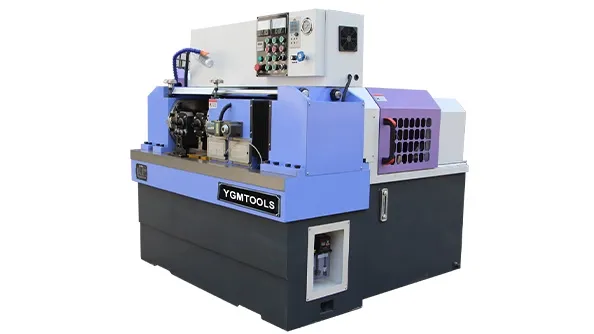
-
 Afrikaans
Afrikaans -
 Albanian
Albanian -
 Amharic
Amharic -
 Arabic
Arabic -
 Armenian
Armenian -
 Azerbaijani
Azerbaijani -
 Basque
Basque -
 Belarusian
Belarusian -
 Bengali
Bengali -
 Bosnian
Bosnian -
 Bulgarian
Bulgarian -
 Catalan
Catalan -
 Cebuano
Cebuano -
 Corsican
Corsican -
 Croatian
Croatian -
 Czech
Czech -
 Danish
Danish -
 Dutch
Dutch -
 English
English -
 Esperanto
Esperanto -
 Estonian
Estonian -
 Finnish
Finnish -
 French
French -
 Frisian
Frisian -
 Galician
Galician -
 Georgian
Georgian -
 German
German -
 Greek
Greek -
 Gujarati
Gujarati -
 Haitian Creole
Haitian Creole -
 hausa
hausa -
 hawaiian
hawaiian -
 Hebrew
Hebrew -
 Hindi
Hindi -
 Miao
Miao -
 Hungarian
Hungarian -
 Icelandic
Icelandic -
 igbo
igbo -
 Indonesian
Indonesian -
 irish
irish -
 Italian
Italian -
 Japanese
Japanese -
 Javanese
Javanese -
 Kannada
Kannada -
 kazakh
kazakh -
 Khmer
Khmer -
 Rwandese
Rwandese -
 Korean
Korean -
 Kurdish
Kurdish -
 Kyrgyz
Kyrgyz -
 Lao
Lao -
 Latin
Latin -
 Latvian
Latvian -
 Lithuanian
Lithuanian -
 Luxembourgish
Luxembourgish -
 Macedonian
Macedonian -
 Malgashi
Malgashi -
 Malay
Malay -
 Malayalam
Malayalam -
 Maltese
Maltese -
 Maori
Maori -
 Marathi
Marathi -
 Mongolian
Mongolian -
 Myanmar
Myanmar -
 Nepali
Nepali -
 Norwegian
Norwegian -
 Norwegian
Norwegian -
 Occitan
Occitan -
 Pashto
Pashto -
 Persian
Persian -
 Polish
Polish -
 Portuguese
Portuguese -
 Punjabi
Punjabi -
 Romanian
Romanian -
 Russian
Russian -
 Samoan
Samoan -
 Scottish Gaelic
Scottish Gaelic -
 Serbian
Serbian -
 Sesotho
Sesotho -
 Shona
Shona -
 Sindhi
Sindhi -
 Sinhala
Sinhala -
 Slovak
Slovak -
 Slovenian
Slovenian -
 Somali
Somali -
 Spanish
Spanish -
 Sundanese
Sundanese -
 Swahili
Swahili -
 Swedish
Swedish -
 Tagalog
Tagalog -
 Tajik
Tajik -
 Tamil
Tamil -
 Tatar
Tatar -
 Telugu
Telugu -
 Thai
Thai -
 Turkish
Turkish -
 Turkmen
Turkmen -
 Ukrainian
Ukrainian -
 Urdu
Urdu -
 Uighur
Uighur -
 Uzbek
Uzbek -
 Vietnamese
Vietnamese -
 Welsh
Welsh -
 Bantu
Bantu -
 Yiddish
Yiddish -
 Yoruba
Yoruba -
 Zulu
Zulu
Exploring the Efficiency and Innovation of Modern Thread Rolling Machine Technology in Industrial Applications
Understanding Thread Rolling Machine Working Principles
Thread rolling is a manufacturing process used to create threads on metal fasteners, rods, and various other components. It is a cold working technique, meaning it reshapes the material without the application of heat. The thread rolling machine is a crucial piece of equipment in the manufacturing industry, particularly in producing high-quality, durable threaded products. This article will explore the working principles of thread rolling machines, their benefits, and their applications.
Working Principles of Thread Rolling Machines
Thread rolling machines operate on a simple yet effective principle of compressive force. The process begins with a blank workpiece, typically made of steel or other metals, which is fed into the machine. The primary components of a thread rolling machine include the rolling dies, feed mechanism, and power unit.
1. Rolling Dies The heart of the thread rolling machine is the set of precision-engineered rolling dies. These dies are designed in the shape of the desired thread profile. As the workpiece is fed between these dies, the rotational movement causes the material to deform and flow into the thread shape, forming the threads as it passes through.
2. Feed Mechanism The feed mechanism ensures that the workpiece is accurately positioned and moved through the rollers. This is often accomplished using hydraulic or mechanical systems that allow for precise control of the speed and position of the material.
3. Power Unit The power unit drives the rolling process, providing the necessary force to the dies to shape the metal. Electric motors are commonly used, and they can vary in speed and torque, depending on the material being rolled and the complexity of the threads.
During the rolling process, the workpiece is subjected to immense pressure, which results in the cold working of the metal. This cold working enhances the material’s mechanical properties, increasing its strength and durability. The process typically involves a reduction in diameter and an increase in length.
thread rolling machine working quotes

Benefits of Thread Rolling
The thread rolling process offers several advantages over traditional machining methods, such as cutting or grinding
- Increased Strength Because thread rolling is a cold working process, the workpiece experiences strain hardening, resulting in stronger threads that are less prone to failure. - Material Efficiency Thread rolling produces minimal waste compared to machining, where material is often cut away. This leads to cost savings and a more sustainable manufacturing process. - Improved Surface Finish The rolling process results in a smooth surface finish, reducing the need for additional finishing operations. - Higher Production Rates As a continuous process, thread rolling machines can produce threads at much faster rates than traditional methods, increasing overall productivity.
Applications of Thread Rolling Machines
Thread rolling machines are widely used across various industries, including automotive, aerospace, construction, and electronics. They are primarily employed to produce fasteners like bolts, nuts, and screws, which require precise threading for secure assembly and operation. Additionally, thread rolling is utilized for the manufacturing of various components, such as valve stems, hydraulic parts, and other custom metal products that demand high strength and reliability.
Conclusion
In conclusion, thread rolling machines play a vital role in modern manufacturing, offering efficiency and quality in producing threaded components. The cold working process enhances the strength of the materials, reduces waste, and ensures high production rates, making it a preferred choice for many industries. As technology advances, the thread rolling machine will continue to evolve, further improving the capabilities and quality of the products it helps to create.
